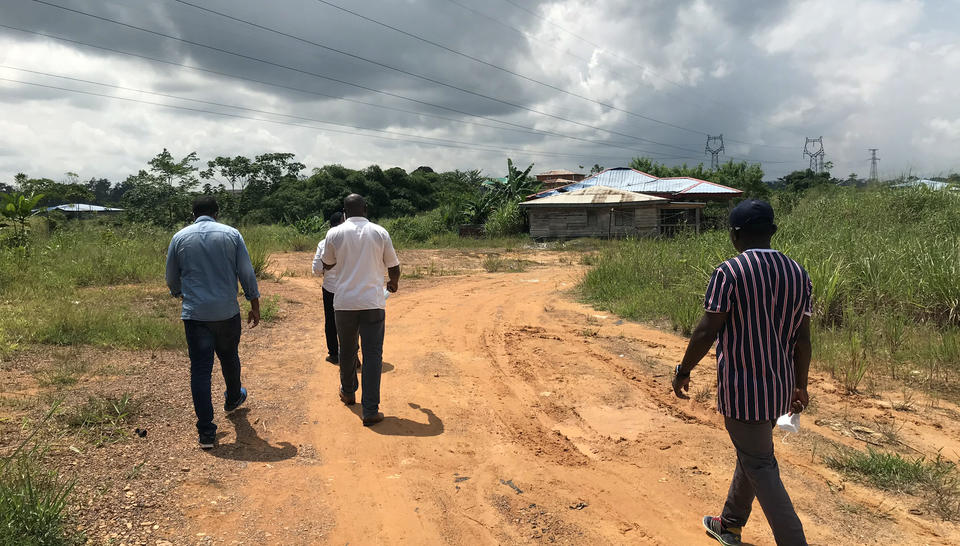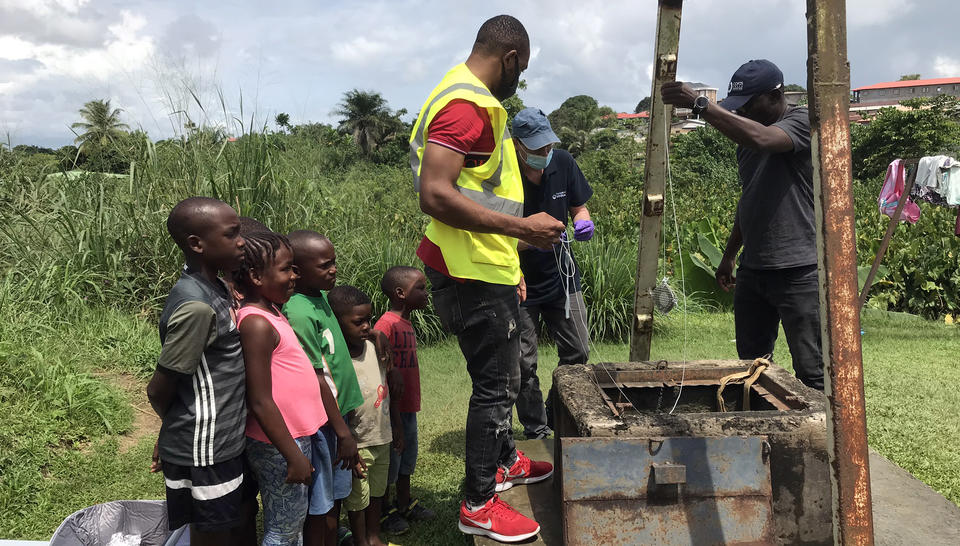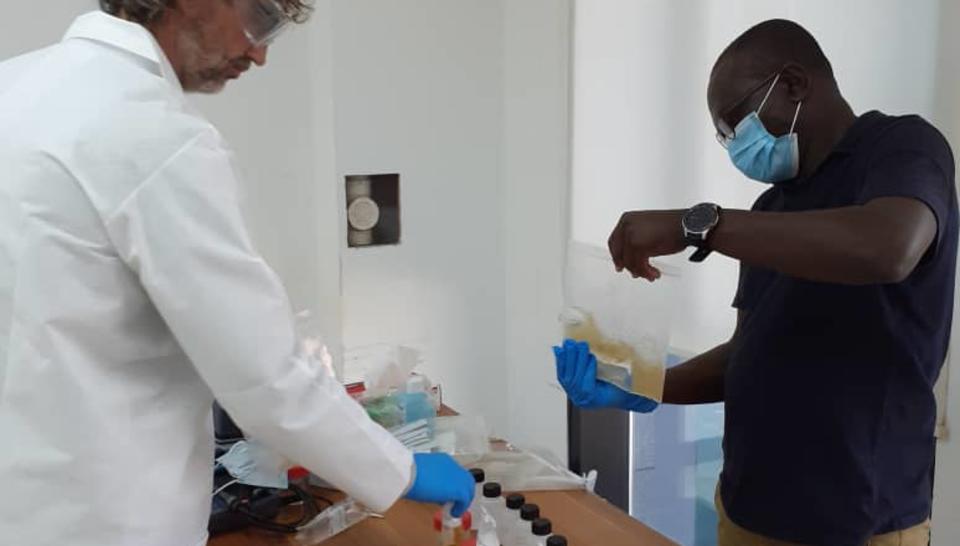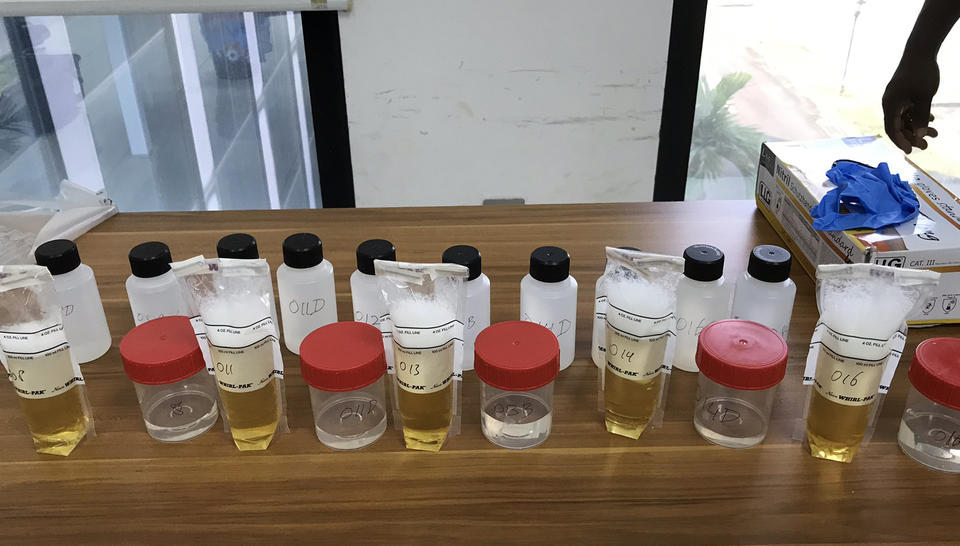In Bata, the economic capital of Equatorial Guinea, the explosion of an ammunition’s depot caused concern and uncertainty. As part of its humanitarian action to support to the Government of Equatorial Guinea, UNICEF asked the Veolia foundation, a long-established stand-by partner, to examine the risk of contamination.
With teams from Veolia's Scientific and Technological Expertise Department, the Foundation checked the level of contamination of drinking water resources (groundwater, river water). Explanations with Valérie Ingrand, Head of the Analysis division at Veolia.
Veolia's research laboratories are rarely on the front line during Veoliaforce assignments. How did your team find itself at the heart of this intervention?
Valérie Ingrand: This is the first time that a request made to the Foundation has resulted in the implementation of laboratory activities. And it's very exhilarating! The teams in the Analysis division had to quickly reorganise their work schedules to improve responsiveness and flexibility. An agile structure had to be put in place to adapt to the specific conditions of a Veoliaforce assignment, which involved field sampling and laboratory analyses.
In practical terms, how do you prepare for an assignment to analyse water resources?
VI: The first equation to solve was to identify the best sampling and analysis solutions taking into account the geographical distance, the constraints of the site, the stability of the micro-pollutants to be transported, etc. Then we had to prepare sampling solutions based on the available material, train Karim Helmi, project manager*, who was leaving for the field… And it was finally on an RER train platform that Karim was able to collect the equipment just before his departure!
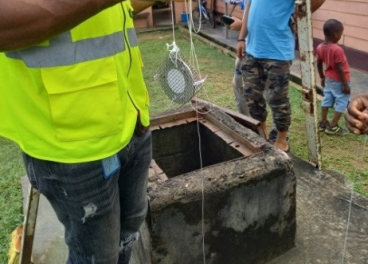
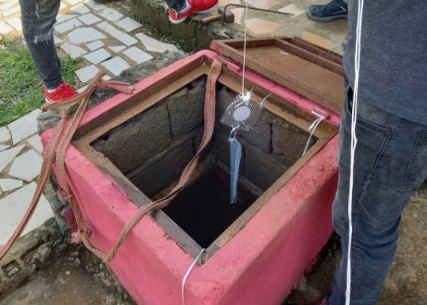
Deployment of Pocis-type passive samplers in situ to quantify the composition.
During the assignment in Equatorial Guinea, did the Veoliaforce volunteer encounter any difficulties?
VI: We faced several issues that challenged our procedures. The first was the explosion that had taken place a few weeks before our arrival: we opted for a system based on several passive samplers to improve the sensitivity of our tools and not miss micro-pollution. We also had to adapt our equipment, which had never before been used to identify explosive residues. We researched the physico-chemical properties of such residues to ensure that they would be detected during the analyses. Finally, the sampling solution that we implemented also took into account the fact that the micro-pollutants had to be stabilised between sampling and analysis.
You mentioned the constraints specific to the field. Were you in contact with Karim Helmi during the sampling operations?
VI: Yes, the whole team rallied to provide him with real-time support to deal with the unusual situation. He sent us photos so that together we could identify the best way to proceed.
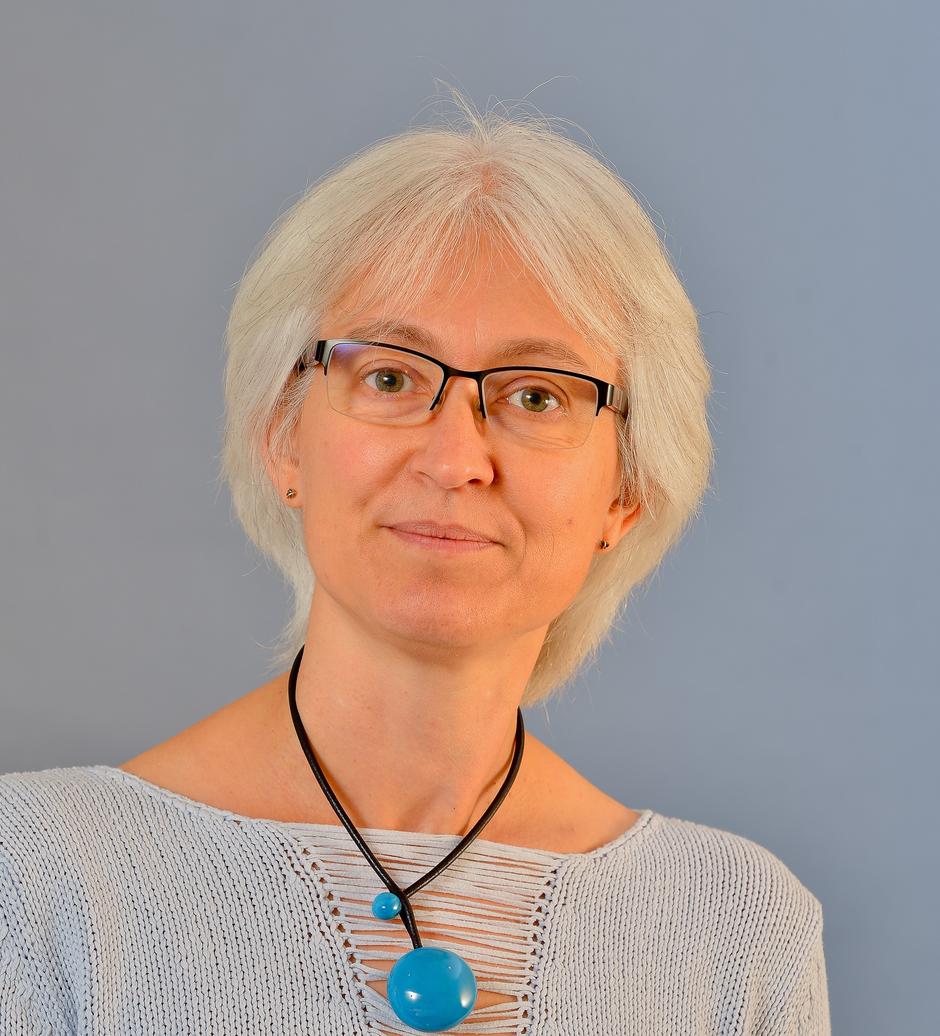
A mobilised team
Under the authority of Valérie Ingrand, Head of the Analysis division, Jonathan Coulmin, Daniela Krcic, Gaëla Leroy, Michel Letort, Patricia Mivelaz and Christophe Tondelier rallied to support Karim Helmi remotely and carry out all the analyses and interpretations.
What have the analyses carried out in the research laboratories revealed?
VI: We have set up an analytical expertise known as “chemical footprint 4000”, which consists of looking for approximately 4,000 micro-pollutants of environmental interest, to which we have added analytical data from 70 explosive residues, to complete the examination spectrum, given the context. The results were very reassuring, with pollution levels that are usually found in surface waters in Europe. And no explosive residues were identified.
What does being a Veoliaforce volunteer mean for a Group researcher?
VI: For the employees of the Scientific and Technological Expertise Department, working for the Foundation means feeling fully “resourceful”: never letting go and moving forward together. This solidarity between Veoliaforce volunteers is, as we have experienced, necessary to devise solutions adapted to the emergency. You have to switch to “task force” mode to think together and increase responsiveness. It is necessary for being efficient and, for us researchers, it's a way of working that's a little different from our day-to-day. The teams are changing their professional paradigm and gaining in soft skills.
On a human level, volunteering with Veoliaforce is very rewarding. The Veolia foundation is not an NGO but it is recognised by NGOs as a valuable player in the sector. It is well regarded. When you're on the “second line”, it's a source of great pride. Our Research department has useful skills for the humanitarian sector and this has been felt, in Equatorial Guinea and in our laboratories, in a very concrete way with this assignment.


